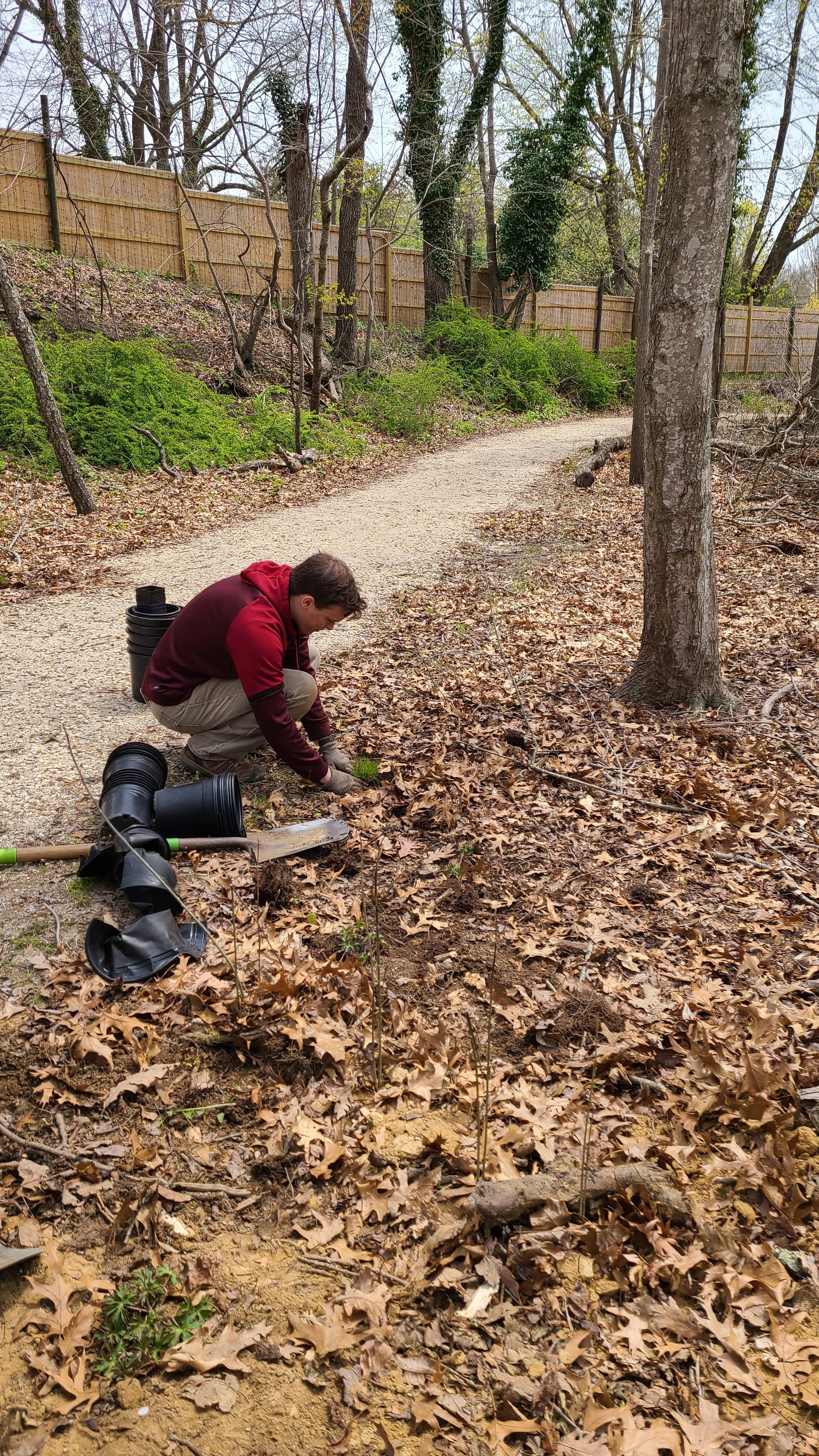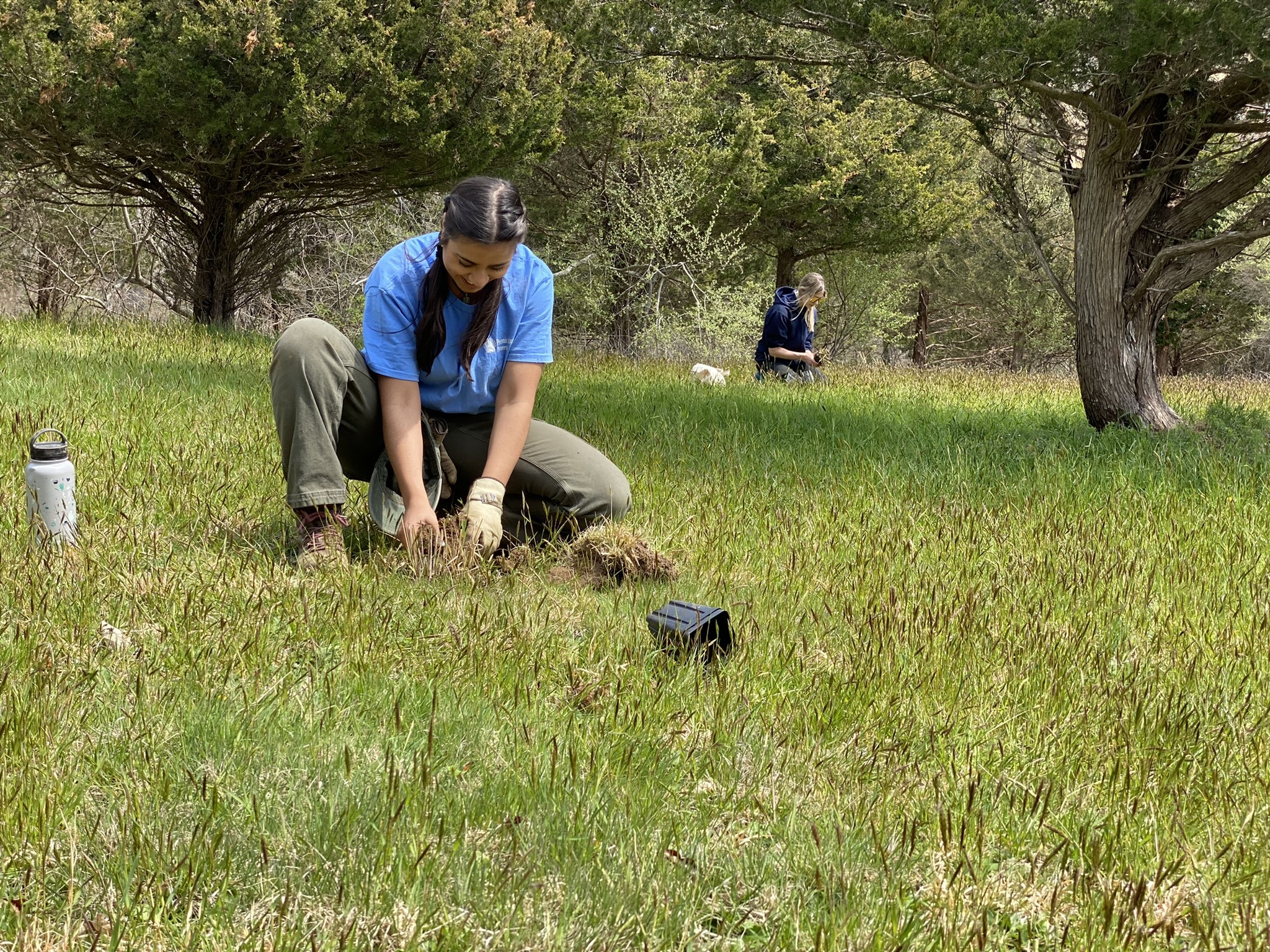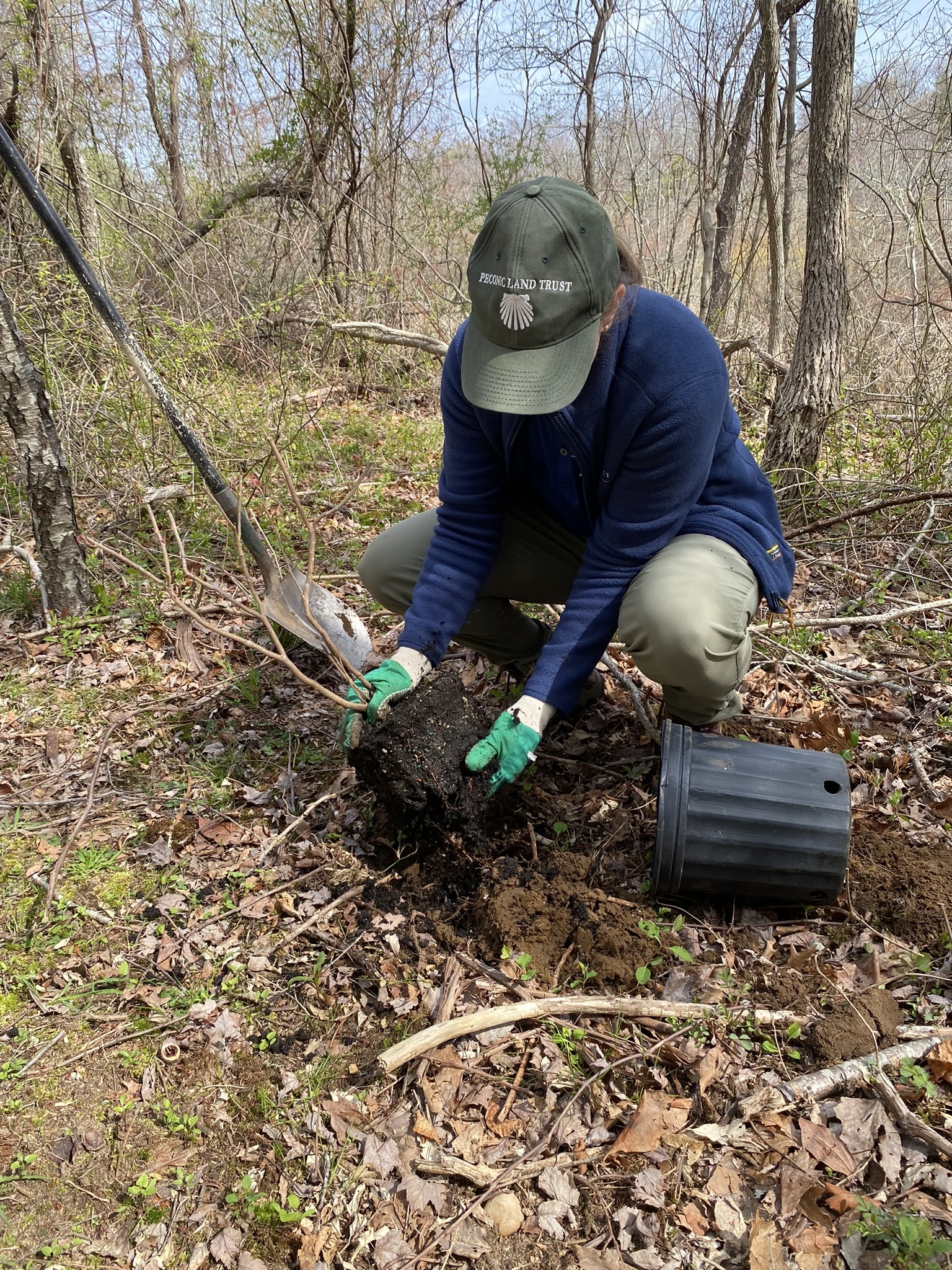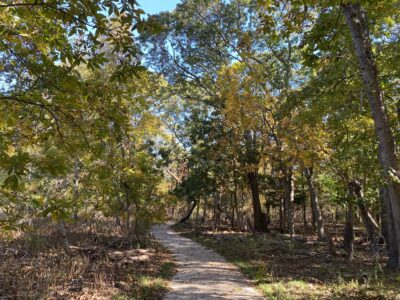Blog
Working Together to Support Our Local Pollinators
By Kathleen Kennedy
The Peconic Land Trust has joined the Suffolk Alliance for Pollinators (SAP), a new initiative created by Cornell Cooperative Extension of Suffolk County. This coalition of environmental organizations, garden clubs, municipalities, libraries, civic groups, and more are all working together to create a corridor of gardens and natural places on Long Island that will support the needs of pollinating insects and wildlife critical to agriculture, food systems and ecosystems.
SAP hopes to amplify a larger national effort to create a “pollinator pathway” that will support a wide variety of bees, wasps, butterflies, birds, and other wildlife across the United States and Canada.
Pollinators rely on native plants that provide them with food as well as a place to live and breed. Habitats and food sources have been decreasing due to land fragmentation, use of pesticides, planting of non-native plants, and existence of invasive plants that out-compete native plants for habitat in our gardens and natural areas. By working together, the Alliance is encouraging its partners – and home gardeners – to create a pathway of habitat featuring more native plants to increase food resources and nesting areas for pollinators.
Your property can be a part of the pollinator pathway too! Steps to take include reducing the size of your manicured lawn, using only organic fertilizers and treatments on your landscape, planting native perennials, shrubs, and trees, and resisting the removal of fallen leaves and dead stalks at the end of the growing season. These provide places for bees and other insects to over-winter until the warmer temperatures of spring return.



The Trust has a long history of supporting pollinators by removing invasive plants and planting native perennials, shrubs, and small trees at our preserves. This work is accomplished by our staff, led by Vice President Matt Swain, with the assistance of Matt Daly, owner of MGD Horticultural Services in Mattituck. Volunteers have also been very important to the success of our efforts. The most recent installations of native plants were completed at Wolf and Reese Preserves in Southold, Georgica Pond Preserve in Wainscott, Quail Hill Farm in Amagansett, and at our public demonstration garden, Bridge Gardens in Bridgehampton, where new native plants go in every year.


